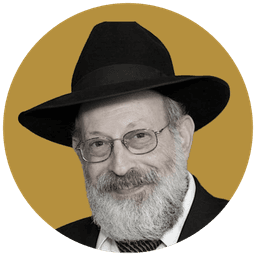Stemming from Our Creator
This article is from the archive of The New York Sun before the launch of its new website in 2022. The Sun has neither altered nor updated such articles but will seek to correct any errors, mis-categorizations or other problems introduced during transfer.

A possible cure for cancer lies in a little-understood component produced by living human brain cells. Researchers are hopeful that studying the substance will lead to treatments that could make a number of cancers things of the past. The substance, however, is found only in functioning cells, and the procedure to obtain it invariably results in the death of the donor; scientists hope to harvest it from terminal patients and the infirm elderly. Some religious leaders have voiced objections, but the consensus in the scientific community is enthusiastic.
“People who will soon die,” explains one distinguished medical ethicist, “are not really alive in any meaningful sense anyway, and this research holds great promise for the rest of humanity.” Congressional proponents of a bill that would provide federal funds for the research concur. As one of the bill’s sponsors put it, “To allow religious concerns to hinder the march of medical progress would be unconscionable.”
The previous paragraphs, of course, are a wild hallucination, a mildly promising premise, perhaps, for a science-fiction novel. But the dark fantasy can nevertheless serve to illuminate an all-too-real contemporary ethical quandary: embryonic stem cell research.
Stem cells, for anyone still uninformed, are biological entities with the remarkable ability to develop into many different types of specialized cells. They can theoretically divide and redivide without limit, and thus offer the hope that they might be harnessed to replenish damaged or diseased organs, tissues or blood. Treatments for scourges like Alzheimer’s and Parkinson’s diseases might become possible as a result of stem-cell research.
Some stem cells can be harvested from umbilical cords, bone marrow and even from adult human tissue; but many medical researchers feel that stem cells taken from embryos present the greatest opportunities for potential therapy.
And therein lies the quandary. Because, implanted in a womb, human embryos become human beings; mining them for their stem cells terminates that possibility. Thus, the Catholic Church and several other religious communities have taken the position that embryos, even in vitro and at an early stage of development, must not be destroyed for any reason, even scientific research.
President Bush’s approach to the question of federal government funding for embryonic stem cell research has been a cautious one – for some, too cautious. Although the Bush administration opened the doors to such funding in 2001, it has limited the use of federal dollars to research that uses nonembryonic stem cells or already-produced lines of embryonic cells – there are no curbs on state or privately funded stem-cell research. The issue has unfortunately, if predictably, become politicized in this election year.
The politicization of the question of embryonic stem-cell research has resulted in its being portrayed as an issue of black and white or, maybe better, blue and red, a stark battle between progress and backwardness.
Senator Kerry for instance, has addressed the topic by saying things such as, “Here in America we don’t sacrifice science for ideology” and by decrying the “barriers that stand in the way of science.” Declaring his intention, if elected president, to lift the “ban on stem cell research” – by which he presumably meant the ban on federal funding for research involving the destruction of embryos – he said, “We’re going to listen to our scientists and stand up for science. We’re going to say yes to knowledge, yes to discovery…”
Similarly, recalling his father’s battle with Alzheimer’s, Ron Reagan Jr. has made the case for government support for unfettered stem cell research by denouncing what he characterized as “the theology of the few be[ing] allowed to forestall the health and well-being of the many,” and couched the debate over the federal funding of such research as a choice “between the future and the past, between reason and ignorance, between true compassion and mere ideology.”
There is a misnomer in this formulation. Communism and fascism are “mere ideologies”; concern for human life, whether at its end or its beginning, is a moral and ethical concern. Such concerns are among the deepest of human responsibilities, part of our sublime service to our creator and to our fellow human beings. And while there is ample talk about the importance of progress and scientific advancement, there is precious little about responsibility and service.
The fact that the ethical concerns that have been raised concerning embryonic research have largely emanated from religious communities in no way diminishes their relevance in the public policy domain. “Ideology” used as a pejorative synonym for “religious concerns” implies, wrongly, that religious values have no place in discussions of public policy. Public policy denuded of religious values is public policy profoundly impoverished.
I don’t mean to suggest that ethical, moral, and religious concerns would necessarily foreclose embryonic stem-cell research. Reasonable people can certainly disagree about the propriety of destroying embryos for potentially life-saving medical research, and likewise about whether federal funds deserve to be used for the same. Indeed, while the issue is complex and still under review in rabbinic circles, a number of Jewish scholars and groups, including some Orthodox rabbis and organizations, have concluded that Judaism would encourage embryonic stem-cell research under certain conditions, and have expressed support for federal funding for such research.
The arguments, though, that are marshaled in the public sphere must consist of something more than paeans to progress. For the issue remains one of human service to something higher than ourselves and infinitely higher than partisan politics. Embryonic stem-cell research needs to be approached and evaluated with all the care and gravity appropriate to any ethical matter, especially one that touches, as it does, upon issues of life, death, and human responsibility.
Mr. Shafran is director of public affairs for Agudath Israel of America.

